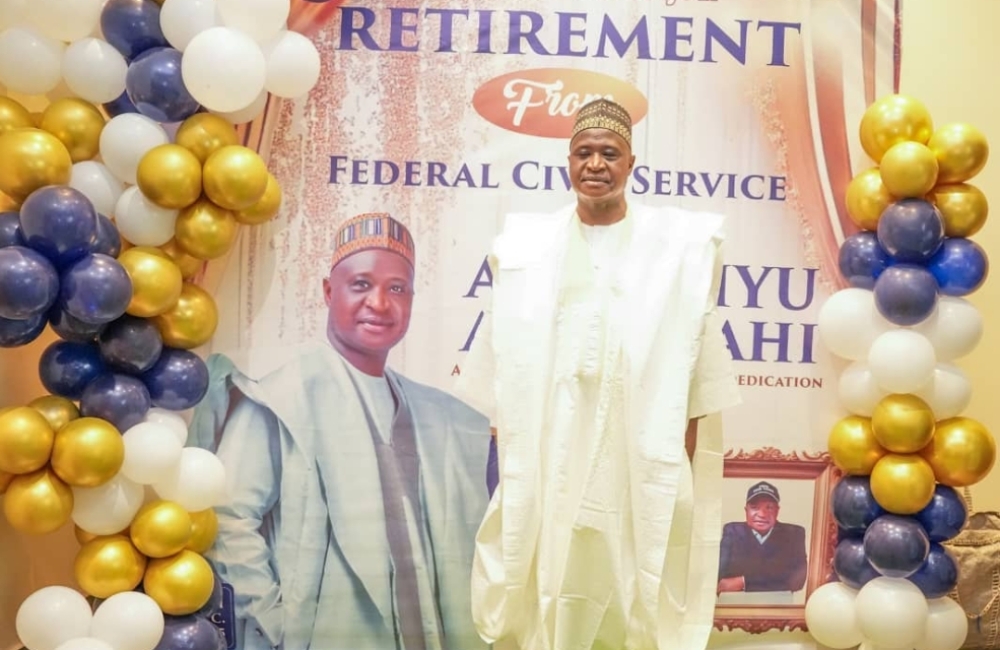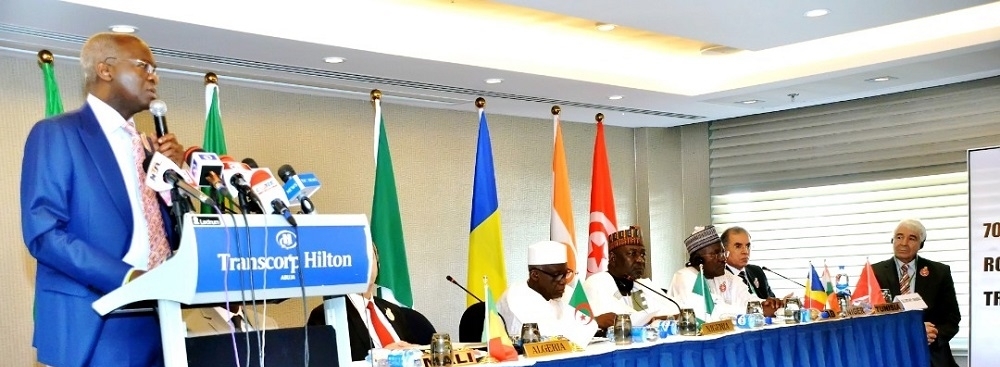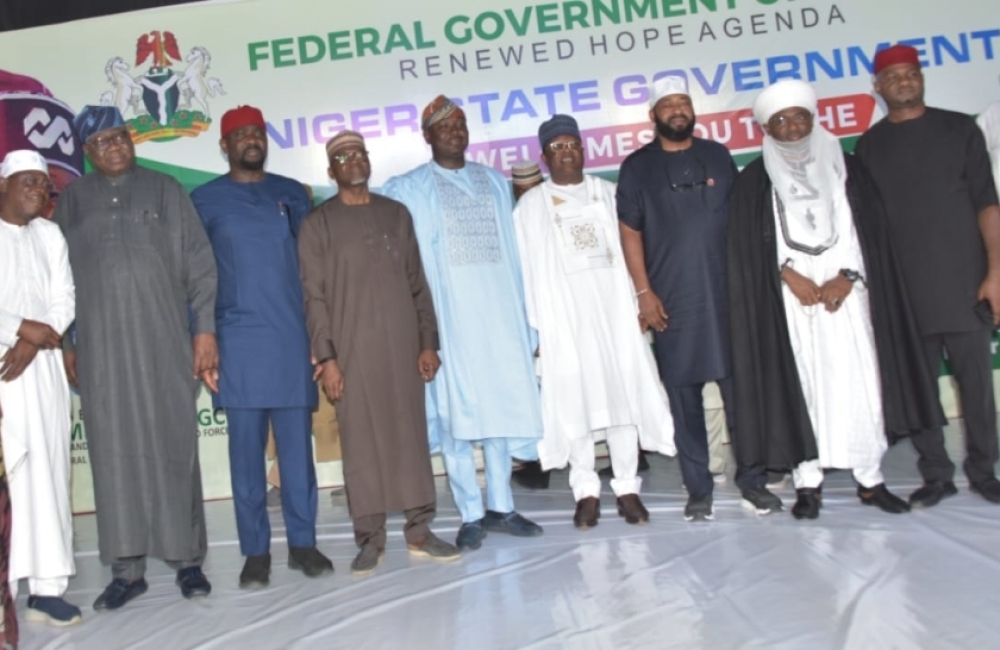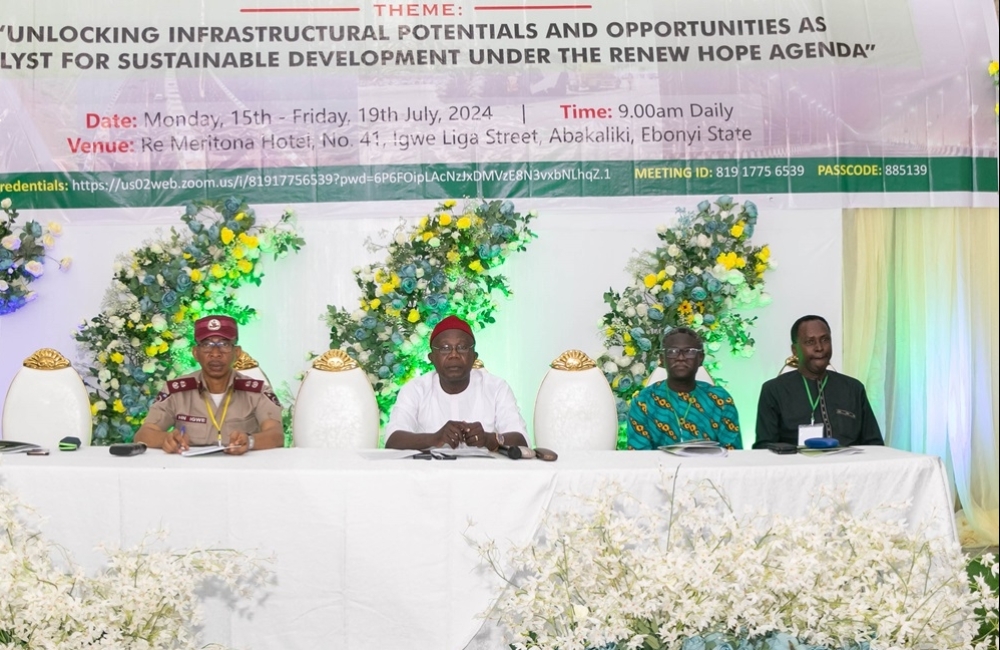Speech Delivered By The Honourable Minister Of Works And Housing, Babatunde Raji Fashola, SAN At The Opening Ceremony Of The 70th Session Of The Trans Sahara Road Liaison Committee (TRLC)
PROTOCOLS
I am pleased to welcome the President of the Federal Republic of Nigeria, His Excellency, Muhammadu Buhari, who is represented by Muhammad Maigari Dingyadi, Hon. Minister of Police Affairs to the 70th Session of the Trans Sahara Road Liaison Committee. I especially thank his Excellency, on behalf of the Trans Sahara Road Liaison Committee for granting us the approval to host this Session in Nigeria.
2. I will also like to extend a special welcome to Member Country Ministers in charge of road infrastructure from Republic of Tunisia, Peoples Democratic Republic of Algeria, Republic of Mali, Republic of T’chad and Republic of the Niger. The last Ministerial meeting of the TRLC was held in 2014 in Algiers, Algeria therefore I believe there is a lot of information the Secretariat and the Experts will be sharing with us over the next two days.
3. Every session of the TRLC has the objective of discussing issues relating to the route, the financing and relationship with continental organisations such as the African Union Commission (AUC), African Development Bank (AfDB), New Partnership for African Development (NEPAD), Arab Bank for Economic Development in Africa (BADEA) and Organisation of Petroleum Exporting Countries (OPEC) who are our partners in the development of the Trans Sahara Road (TSR).
4. In this light, the TRLC member countries would like to appreciate the contributions of these organisations in no small measure towards the development of the route.
5. Before going into some of the details, I believe that Nigeria’s hosting of this event, necessitates that we provide some background information about what this is about and what it means for ordinary Nigerians:
* To start with it is useful for every African to be aware of the existence of a Trans African Highway Plan seeking to connect Africa from Cape Town to Tunisia either by driving through East Africa Border, the West African Border or through the Centre of Africa.
* There is also a Coast to Coast connectivity from West to East Africa, North East Africa to North West Africa and South West Africa to East Africa.
* A total of 9 (Nine) Highways at different stages of construction are meant to achieve this connectivity. Three of these Highways pass through the Territory of Nigeria, namely:
(a) Lagos – Dakar (through Seme in Benin Republic);
(b) Lagos – Mombasa (through Yaoundè in Cameroon); and
(c) Lagos – Algiers, which is the one supported by this Committee and this is the subject of our meeting.
* This road covers 9,022km (7,171km 80%) is asphalt while 1,851km (20%) is earth road.
* It serves 37 regions, 74 urban centres with 60 million inhabitants in 6 (six) Countries who are members of this Committee. It is important to underscore here that the critical part of the Trans Sahara Highway which in centuries past is plied by Camels and Horses for trade has now developed for use by vehicles.
* For Nigerians it is important to know that 1,131km of the 9,022km passes through our country from Lagos to Ibadan, Ilorin – Jebba, Kaduna – Kano – Kongolam where we have a border with Niger Republic.
6. The development of the Trans Sahara Route is to ensure integration, improvement of economic activities and cooperation between Member Countries. This will provide the business community access to explore and maximise the enormous economic opportunities available within member countries. There are immense possibilities from Fashion, Agriculture, Technology, Energy to Film and Music.The journey from 1960 when the Trans Sahara Route (TSR) was established till date has not been easy, but concerted efforts must be made at realising the objectives of the TSR.
7. The entire section of the 1,131km long Trans Sahara Route in Nigeria from Lagos – Ibadan – Ilorin – Kaduna – Kano – Kongolam Niger Republic Border has asphalt surfacing. The current activity on the various section of the route are as follows:
* The Lagos-Ibadan road is 127km long. The Lagos-Shagamu section (43.6Km) is being developed into a 3-lane dual carriageway while the Shagamu-Ibadan section (83.4Km) is being reconstructed as a 2-lane dual carriageway.
* The Ibadan-Ilorin section of the road is a dual carriageway of 160km long out of which 105.5km has been dualised leaving only 54.2km that is in progress of being dualised. The old alignment is being maintained to ensure free flow of traffic at all times.
* The Ilorin-Jebba-Birnin Gwari-Kaduna section of the route is 458km long single lane carriageway. The Ilorin-Jebba section that is 105km long has been fully rehabilitated and is currently being dualised while the Jebba-Mokwa-Birnin Gwari-Kaduna section (353km) is also being considered for future dualisation.
* Kaduna – Kano dual carriageway which is 230km long is under reconstruction and the work is currently being executed in three sections to enable speedy completion.
* Kano – Kazaure – Kongolam Section is 133km long and is a single lane carriageway.
8. The progress of works that we are achieving on these routes in the coming weeks and months will strengthen integration, cultural cooperation and economic trade and competition in the African Continental Free Trade Area.
9. The importance of the Trans Sahara Route to the Nigeria economy is underlined by the priority Mr. President has placed on the funding, wherein, the reconstruction of the Lagos – Ibadan Section and the Kaduna – Kano Section is included under Presidential Infrastructure Development Fund (PIDF) to ensure that there is no funding gap associated with the execution of the works, and the recent signing of the African Continental Free Trade Area (ACFTA) Treaty.
10. While Trade and cultural integration are important, safety is also paramount and I am delighted to announce that just last Wednesday the Federal Executive Council approved that Nigeria should ratify and domesticate the African Road Safety Charter adopted at 26th ordinary session of the African Union Commission in January 2016 in Addis Ababa.
11. Once more, my gratitude goes to His Excellency, President Muhammadu Buhari for hosting of the 70th session of the TRLC in Nigeria and the support given to the development of the section of the Trans Sahara road in Nigeria, to the Member Country Ministers for the support they have given to the development of the Trans Sahara Road within their respective countries and for the support of our financial partners over the years.
12. I also congratulate Member Country Experts and the Secretary General for a job well done and to remind you that there is still a lot of work that is yet to be accomplished.
13. You are all welcome to the 70th Session of the Trans Sahara Road Liaison Committee, you are most welcome to Abuja, the capital city of Nigeria, and you are especially welcome to Nigeria.
Thank you.
Babatunde Raji Fashola, SAN
Honourable Minister
November, 2019







